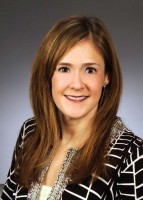Pro Bono Publico
Louisiana Appleseed taps local lawyers to assist the public
Before Hurricane Katrina, Christy Kane was a partner at the law firm of Adams and  Reese. She focused on class action litigation, but she always made time for pro bono work because it was, she said, “the right thing to do.” After the storm, Appleseed, a national nonprofit that harnesses the legal community to serve the public interest, wanted to open an office in Louisiana. It partnered with ConocoPhillips and Adams and Reese, which allowed Kane to spend 2007 starting the office. In 2008, Kane decided to leave private practice and enter the nonprofit sector full time as the executive director of Louisiana Appleseed.
Reese. She focused on class action litigation, but she always made time for pro bono work because it was, she said, “the right thing to do.” After the storm, Appleseed, a national nonprofit that harnesses the legal community to serve the public interest, wanted to open an office in Louisiana. It partnered with ConocoPhillips and Adams and Reese, which allowed Kane to spend 2007 starting the office. In 2008, Kane decided to leave private practice and enter the nonprofit sector full time as the executive director of Louisiana Appleseed.
What are lawyers able to accomplish that other volunteers aren’t?
Appleseed provides an opportunity for lawyers to do pro bono work on the policy or systemic level. Lawyers have been trained in analysis. They are well-equipped to research the existing law, to analyze how that law is being implemented, to determine what could be changed to improve access for people and then to advocate for that change. We try to make changes on a big level to solve problems at their root cause.
You have worked on increasing access to recovery funds. Who has been left out?
One of our projects is preserving home ownership for low-wealth families. Many families have lived on the same property for generations, but they didn’t pass it down through the legal system. When a disaster strikes, they don’t have a clear title and can’t get federal funds to repair that property. If we can bump down the cost of that process, then hopefully it will encourage people who need a clear title to go ahead and do that now.
Is this just an issue in New Orleans?
It’s also a problem in rural Louisiana, where people live on farmland that has been passed from generation to generation. And it’s not just about disasters. They live in the home, care for the home, but aren’t able to tap into it as a wealth-building tool because they don’t hold a clear title. It’s really about helping our low-wealth community build assets.
How has Louisiana Appleseed encouraged the local Latino community to use the banking system?
There is this problem of distrust of the U.S. banking system within the Latino community. We used a team of lawyers to go into the banking community and glean from them information about existing products and services geared towards the unbanked Latino community. Then we went to the Latino community and surveyed them to find out why they aren’t using banks and credit unions.
Is there one main cause?
Overall we saw in the Latino community just a lack of comfort. Of the Latinos who had a positive experience with the banking system, it was largely because they found another Latino, such as a bank employee or a relative, to walk them through the system.
What kind of assistance did Louisiana Appleseed offer lawyers volunteering after Gustav?
When a hurricane strikes, the government sets up Disaster Recover Centers, or DRCs, in the affected areas. People can go there to get help filling out applications or get pro bono legal assistance on real estate or insurance issues. Relatively quickly in the wake of Gustav, we worked as part of a larger team to create a manual so that lawyers could provide that basic legal advice.
What is your long-term mission?
We’re here and we’re here to stay. We’re focused on recovery and the revitalization of our region. Our programming seeks to be part of that fresh new wave of volunteerism that came about after the storm.
How can attorneys get involved?
Lawyers donating their pro bono time is the main way that we fulfill our mission. Sometimes we seek out lawyers who have skills in a particular area, but we don’t just need people with specialized knowledge. We really just ask our volunteers to use those skills that they learned in law school and use in their practice to help solve these problems.
For more information about Louisiana Appleseed, visit www.appleseeds.net.
